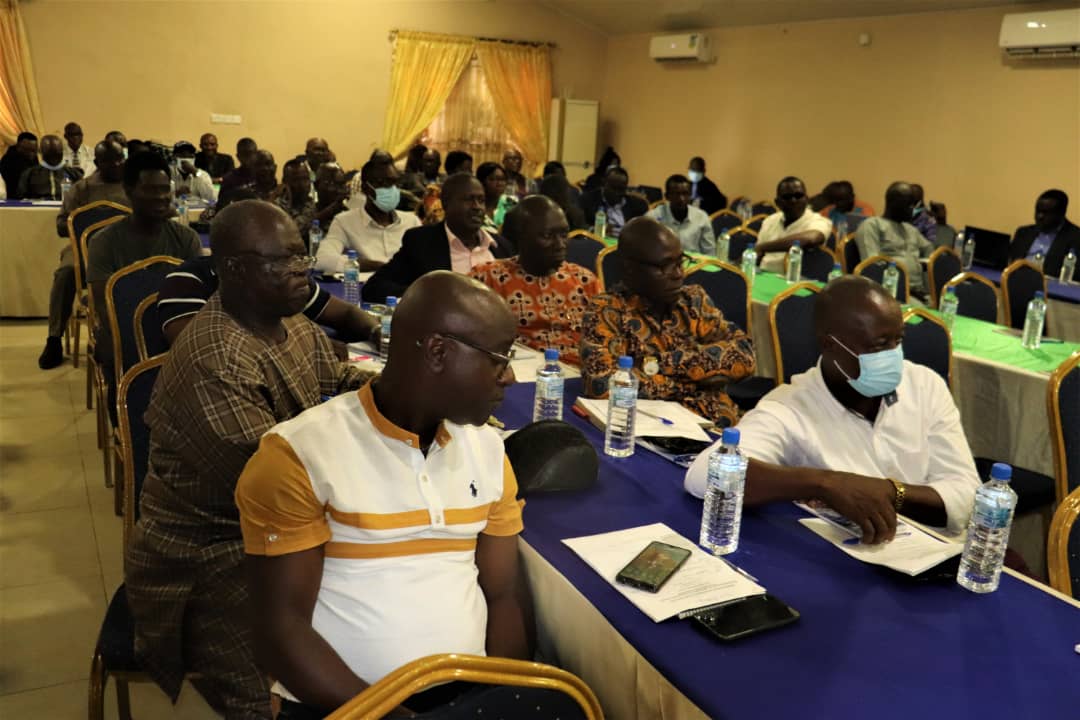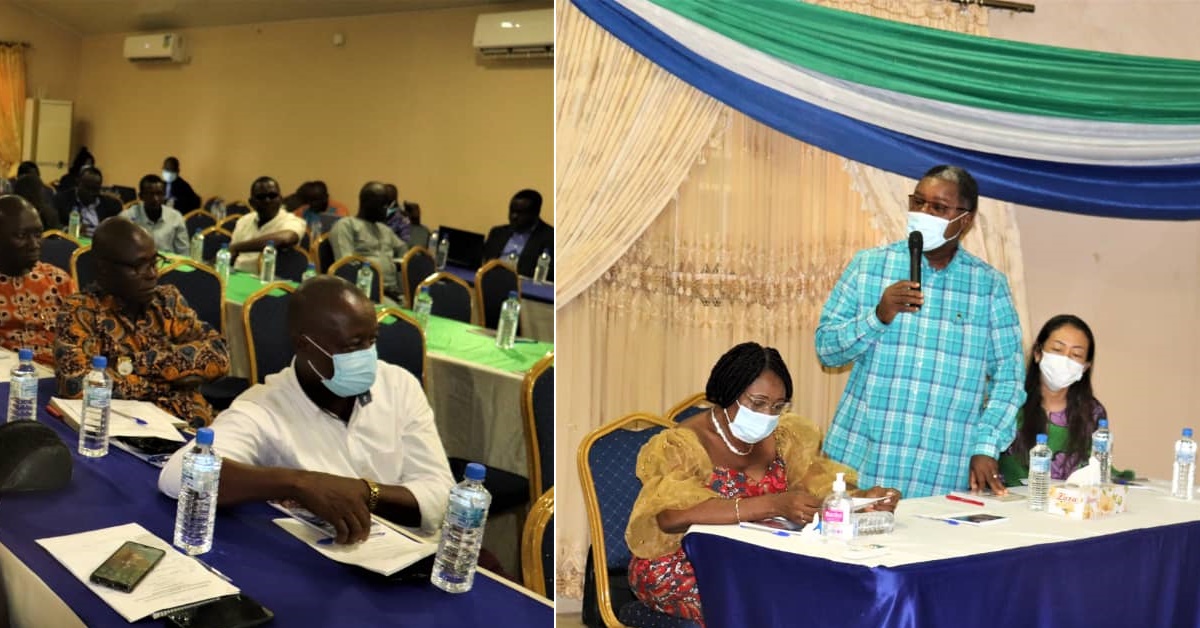Senior officials in the Ministry of Basic and Senior Secondary Education (MBSSE) are presently meeting with partners in the education sector in a mid-term review of the implementation of the Free Quality School Education Programme since its inception in 2018.
This mid-term review is taking place at the Occasion Resort, Lakka on the 2nd and 3rd December 2021.
The President of the Republic of Sierra Leone H.E. Brig. (Rtd) Julius Maada Bio launched the FQSE in August 2018. The FQSE Programme forms a critical component of the New Direction Government’s Human Capital Development Agenda. It aims to increase access to schooling for all children in the country and also improve on the quality of teaching and learning in the classroom.

The Deputy Minister of Basic and Senior Secondary Education Madam Emily Kadiatu Gogra said the FQSE is a manifesto commitment made by the President during his campaign, noting that the FQSE package means that the burden of paying school fees on parents and guardians is no more, and the purchase of exercise and core textbooks is also no longer an expense that prevents parents and guardians from sending their children to school.
“Government gives all government and government-assisted schools subsidies to help them run smoothly.
These subsidies include substitutions for school fees, furniture, expansion of school infrastructure, provision of school amenities such as toilet, water, and sanitation facilities, as well as personal hygiene kits for girls,” she said.
She said the government has also distributed over 12 million exercise books to pupils in all public schools – government and government-assisted schools, adding that the government has also distributed more than 94 containers of core textbooks and other teaching and learning materials to public schools across the country.
The World Bank Senior Education Specialist Dr. Mari Shojo said the FQSE programme has been a great step in the right direction with more students coming to schools in all levels of education.
She said the World Bank congratulates the efforts of the Government of Sierra Leone in placing education at the center of the national development agenda, as articulated in the mid-term national development plan and the President’s vision for human capital development.
“The Ministry of Basic and Senior Secondary Education has, since 2018, implemented a lot of activities in line with the objectives of the Programme. It is therefore expedient that, mid-way into the first phase of the Programme, a review be done to track progress against the objectives, identify challenges and mitigating measures as well as proffer recommendations that would improve on the implementation of the FQSE in the future,” Mr. Amara Sowa National Programme Coordinator for the Free Quality School Education.
During his presentation on the status of implementation of the FQSE, Mr. Sowa said total enrollment has increased by 36% 2018-20, equivalent to 700,000+ more students in school. In addition, there is a clear improvement in gender parity for Senior Secondary School (SSS).
He said gross school completion rates have increased for all levels; by more than 20% points for JSS and SSS, adding that since 2018 the number of students passing NPSE has increased by 27%, or 26,815 students. In 2021 124,541 students passed the exam, more than the total number of students who attempted it in 2018.
Similarly, “Since 2018 the number of students passing the BECE has increased by 62%, or 39,773 students, 104,367 students passed the exam in 2021, more than the total number who attempted it in 2018,” he said.
Mr. Sowa said there is a 25% increase from 2018 to 2020 in the number of students obtaining 5 credits in one sitting in the WASSCE, but gender disparity remains challenging.
He said total payment of school fees has reached 162B SLL in 2021; equivalent to 15M USD. The total number of students sitting exams has increased by 84% from 2018 to 441,299 in 2021. The total payment of examination fees has reached 73B SLL in 2021; equivalent to 7M USD.
Mr. Sowa stated that the number of female teachers is increasing faster than the number of male teachers, and the number of children benefiting from school feeding has quadrupled to more than 400,000 since the launch of FQSE.











